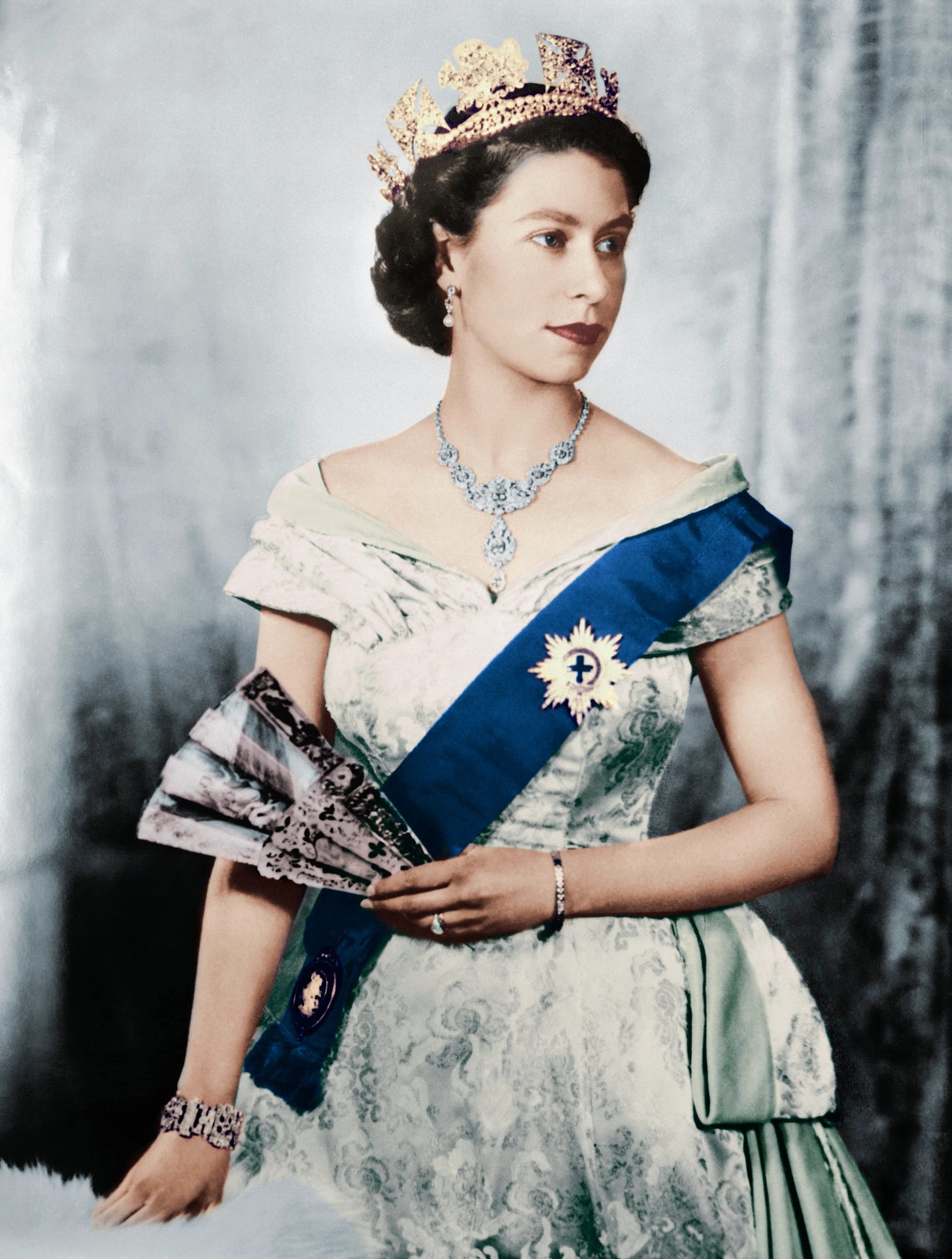Be As Penelope Was
You have tried ambition, but have you considered devotion?
Arehtay (spelled thusly for better voice narration; usually written arete1), loosely translated, means excellence in fulfilling one’s role.
In many ways, arehtay was the driving force for all of Greek society. The pursuit of arehtay was prized above all else in Greek society, and for good reason. In the Iliad, we observe the manifest biological supremacy of Achilles as he and his friends seek glory, death, and strive to showcase arehtay in themselves. In so doing they hope to achieve kleos (undying glory). The story of Achilles shows us men how to harness our passion and ambition and use it to seek arehtay for ourselves. But for women, Achilles’ example offers no good example at all.
If you wish to implement a Bronze Age femininity into your lifestyle, you will want to read the Odyssey young lady. For it is in the Odyssey that we see the most famous example of feminine arehtay in all of human history. Homer leaves no stone unturned. Though the greatest storyteller of all time was a man, he still managed to put forth an example of arehtay for the ladies.
Penelope, Queen of Ithaca
The face that launched a thousand ships may have belonged to Helen, but the greatest woman to have ever lived was Penelope, Queen of Ithaca, wife to Odysseus. She followed the feminine path to arehtay, and millennia later, she still stands as the symbol of the greatest wife, the most wonderful mother, and the perfect woman.
No man has achieved more arehtay than Achilles. And no woman has surpassed the arehtay of Penelope. Both serve as examples to us, Achilles for us men, Penelope for you ladies. Her route to glory, her method for achieving everlasting arehtay, was accomplished, in one word, through devotion.
Penelope’s husband, Odysseus, goes missing for twenty years, and through cunning, discipline, and devotion, Penelope holds herself devoted to the man she has no guarantee of ever seeing again. After two decades, the two are, at long last, reunited, and in so doing, both secure everlasting arehtay, the very reason we still speak their names today.
You see, if kleos is what you seek, you must first determine whether your path to true and everlasting arehtay winds through the forests of devotion or along the pistes of ambition.
Queen Elizabeth II
As I racked my brain for a modern-day example of feminine arehtay, I felt like a fool when I finally realized that there is no recent figure more Penelope-like than that of Queen Elizabeth II. Her late Majesty, The Queen, achieved timeless arehtay and kleos because of how she conducted her life in accordance with what Homer teaches us through Penelope.
This woman got it, as they say. And what’s more, she never once forgot it. She seems to have intuitively understood the role from the very first day of her ascension. Her reign is defined by no other word more than devotion. This woman, ordained by God, spent every moment of her life devoted to her husband, her family, and her subjects, to whom she is mother. Amplified by the length of her tenure, Queen Elizabeth II achieved a feminine arehtay that we are certain never to again witness in our lifetimes.
Emily Wilson
I hesitate to tarnish the pages of this publication with the ugliness of the newest activist-translator of Homer, Emily Wilson, so this link will have to suffice. In her visage, I see the avatar of modern womanhood: the try-hard tattoos, the self-conscious affectation of joylessness in her expression. These self-harms are the evidence of the warped spirit of ambition flowing through a woman who has betrayed her nature. Worse still are her words:
I read Homer’s great poem as a complex and truthful articulation of gender dynamics that continue to haunt us.
— Emily Wilson, The New Yorker, 2017
Ahhh yes, these truths that reconcile themselves with nature. How do they manage to haunt us still in a world filled with true intellectuals like Emily? The full article is much, much worse. If you dare to take the journey into her mind, you must prepare yourself just as Odyssesus did.
Ambition & Devotion
The English word devotion, according to the OED, has had a private connotation since at least the 15th century. This is why we intuitively recoil at the all-too-common Protestant American tradition of public piety. A publicly proclaimed devotion to God carries a falseness about it. Whereas the word ambition has had public connotations since inception. Ambition is a public affair, devotion a private matter.
Homer teaches us that the twin peaks of arehtay available to man and woman must be traveled along different paths. The stories themselves reveal to us that there are two distinct trailheads. One trailhead is marked ambition, the other devotion. Look between your legs for the answer as to which route is best for you. No man or woman has ever achieved everlasting arehtay by trying to climb the wrong peak.
Achilles wasn’t devoted to being the best warrior. He wasn’t devoted to the spear. He certainly wasn’t devoted to Agamemnon, Greece, his kin, or anything but his own fulfillment of arehtay, in service of his ambition for kleos. He had a public ambition for glory, everlasting arehtay was essential to fulfillment of that ambition.
And when Achilles’ mother explains to him that he will die at Troy, it is his ambition for undying fame that compels him to lay siege upon Troy and claim his everlasting arehtay, knowing full well that he will die there.
For my mother Thetis the goddess of the silver feet tells me. I carry two sorts of destiny toward the day of my death. Either, if I stay here and fight beside the city of the Trojans, my return home is gone, but my glory shall be everlasting; but if I return home to the beloved land of my fathers, the excellence of my glory is gone, but there will be a long life left for me, and my end in death will not come to me quickly.
— Homer, The Iliad (Lattimore)
Likewise, Penelope wasn’t ambitious to be recalled as the greatest woman in history. Instead, she was devoted. Devoted to her husband, his kingdom, and her family. And everything else flowed downward from her unparalleled private practice of devotion.
Penelope was the most devoted woman in Homer’s epics. And because of that, she stands today as the most perfect woman to have ever lived. Her feminine arehtay stands unmatched several millennia later.
My Own Mother
I’ve known my parents for 40 years now. And while they are quite near to perfect parents, they are still human, just like you and I. But upon reflection, I have realized something about my mother. I have never once in my life seen my mother’s devotion to her husband and family flag. Never once. I have never seen my mother put something above or before her devotion to her family.
My mother’s devotion to her family is how she has achieved her arehtay. It’s not that my mother is devoid of ambition. Not at all. Heck, she’s a lawyer, and there is no career less feminine than that of attorney. But she took 15 years off from that to raise her boys, just one single example among the millions that illustrate her perfect devotion to her family.
Her public ambitions never once came before or at the expense of her private practice of devotion to her family. And it is through this unshakeable devotion to one’s family that women achieve genuine arehtay. You don’t have to totally renounce a public life of ambition (although you can, if you wish), you just have to remember to never prize anything above your private practice of devotion to your family.
If Kleos Is What You Seek
For the young ladies out there, you would do well to find an ambitious man worthy of your devotion with whom you can start a family. Begin at once, pouring your devotion into him and the family that you build together, and watch as you both ascend the twin peaks of arehtay together, just on different paths.
Your devotion to your family will inspire ever more arehtay in your man. As you shower him in devotion, his ambition will grow, and he will rise to new heights. As his ambition grows and he comes ever closer to finding his arehtay, he will inspire further devotion within you, which will in turn unlock ever more of your own arehtay.
This is a very real-world example of a perpetual motion machine. But in order to build it, you must understand the complementary components of the system. And you must be prepared to embrace your role within the system. Neither component is inferior or superior to the other. There is always a perfect symmetry to all things true and eternal.
I love you, Mom. Happy Mother’s Day.
Thanks for reading.
Yes, Aristotle already synthesized all of this much more magnificently than I ever could. I know because I input the finished contents of this essay into grok and he told me so.
Alas, there are no new ideas, just some good and beautiful ones.
aretē (ἀρετή), n. [Greek] — Excellence or virtue, esp. in fulfilling one’s specific role or function in society.
I am spelling it ‘arehtay’ to make the voice narration pronounce it closer to the way in which it would’ve been pronounced in Ancient Greece.




